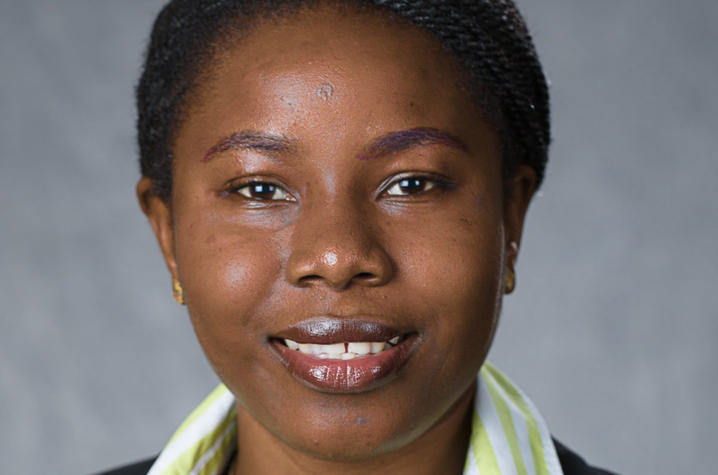Here for a Purpose: Doctoral Student Makes Economic Change in Haiti

LEXINGTON, Ky. (March 14, 2018) — University of Kentucky doctoral student from Benin, West Africa, Sheila Sagbo recently played a primary role as a research specialist on a policy analysis matrix (PAM) project in Haiti. Sagbo worked with agricultural economics professor Michael Reed of the College of Agriculture, Food and Environment and former doctoral student Didier Alia. Alex Winter-Nelson of the University of Illinois at Urbana-Champaign advised the project.
The researchers studied different sectors in agriculture to make important decisions regarding agricultural commodities and policy improvements in Haiti. Sagbo, who started working on the project in October 2015, visited the country multiple times to conduct data analysis and communicate with stakeholders the importance of the PAM.
Sagbo studied four key commodities, rice, beans, sweet potatoes and plantains. She explained that rice was of particular interest because it’s one of Haiti’s staple foods as well as one of the nation’s most imported foods.
Additionally, the project examined the supply chain and its participants, including producers, processors, sellers and exporters. Sagbo also evaluated each participant's income and expenses, analyzed where the bottlenecks of the commodity chains were, and used the PAM to determine who is or isn’t benefiting. The research helped answer questions about who would be affected if policies were changed.
“As a citizen of a developing country, I realized how my field, agricultural economics, offers me an excellent opportunity to help identify and propose solutions to improve the lives of others living in those countries,” Sagbo said. “Haiti and Benin are bound historically and culturally, so for me, doing such work was very meaningful.”
A large part of the project involved capacity building, training stakeholders like the Ministry of Agriculture and Natural Resource and Rural Development to perform data collection to use the PAM independently.
Formerly, Sagbo worked on a project in Haiti that made her a more qualified participant in the research project.
“I really like the country and working with the people there. It reminds me of my home country,” Sagbo said.
After obtaining her doctorate in May, Sagbo hopes to work with an international organization and continue researching ways to improve different sectors within evolving countries.
“I want to continue working on development issues in countries such as Haiti or Benin because that’s where I feel the need is greater. Plus, it gives me a sense of purpose,” Sagbo said.




